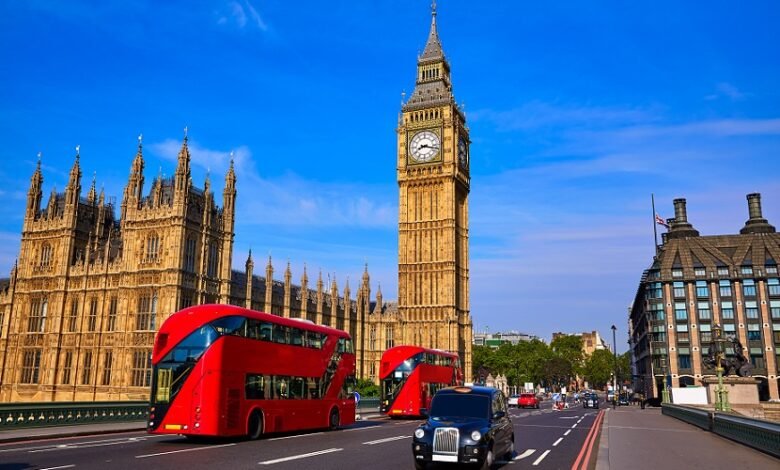The United Kingdom: A Blend of History, Culture, and Modern Influence

Introduction to the United Kingdom
The United Kingdom (often shortened to the UK) is one of the most fascinating and historically rich countries in the world. Officially called the “United Kingdom of Great Britain and Northern Ireland,” it is made up of four nations: England, Scotland, Wales, and Northern Ireland. Each of these regions has its own unique traditions, culture, and identity, yet together they form one of the most influential states globally.
When most people think of the UK, they imagine Big Ben, the royal family, or red double-decker buses cruising through London. While these are iconic, the reality is that the UK is much more diverse than what’s shown in postcards. It’s a country that blends ancient history with modern life, castles with skyscrapers, and small villages with global cities.
What makes the United Kingdom stand out isn’t just its landmarks or history—it’s the influence it has had on politics, culture, education, and global development. From Shakespeare’s plays to The Beatles’ music, from the Industrial Revolution to modern-day innovations, the UK has left a lasting mark on the world.
The Geography and Nations of the UK

The United Kingdom is situated in northwestern Europe, surrounded by the Atlantic Ocean, the North Sea, and the Irish Sea. Its island location has shaped its history and culture in countless ways. For centuries, being an island nation meant both protection from invasions and opportunities for overseas exploration and trade.
England, the largest part of the UK, is home to London—the capital city and one of the world’s leading financial and cultural centers. Scotland, known for its stunning highlands, bagpipes, and whisky, has a proud and distinct identity. Wales, with its breathtaking mountains and coastline, is rich in Celtic heritage and traditions. Northern Ireland, often recognized for its complex political history, is a region of resilience, culture, and beautiful landscapes.
Each nation contributes something special to the United Kingdom as a whole. For example, Scotland is famous for its universities and contributions to philosophy, Wales is known for its lyrical poetry and music, and Northern Ireland’s culture blends Irish and British influences in unique ways. Together, they create a diverse but United Kingdom country.
A Deep Dive into UK History
The history of the UK is long, layered, and deeply impactful. The story begins with ancient Celtic tribes, followed by Roman conquests that left behind roads, walls, and cities. After the fall of Rome, invasions by Saxons, Vikings, and Normans shaped the country’s language, law, and culture.
One of the most defining chapters was the Middle Ages, where monarchs like King Richard the Lionheart and Henry VIII dominated. Castles, knights, and medieval traditions shaped society, but so did events like the signing of the Magna Carta in 1215, which laid the groundwork for democracy. The monarchy remained powerful, but over time, Parliament grew in importance, slowly balancing royal power.
The British Empire, which began expanding in the 16th century, was another turning point. By the 19th century, the UK controlled vast territories across Asia, Africa, and the Americas. This era shaped global trade, language, and culture. While the empire has since dissolved, the UK’s influence remains, especially through the Commonwealth and international diplomacy.
The Monarchy and Its Modern Role
The British monarchy is one of the most recognizable institutions in the world. From Queen Elizabeth II, who served as monarch for over 70 years, to King Charles III who now reigns, the royal family has long been a symbol of tradition, continuity, and unity.
In the past, monarchs had absolute power, deciding laws, wars, and the future of their kingdoms. However, today the monarchy is mostly ceremonial, with real political power lying in Parliament and the Prime Minister. Despite this, the monarchy still plays a vital role in representing the UK on the global stage, maintaining national identity, and preserving centuries-old traditions.
For many people, the monarchy is a point of pride and fascination. The pomp of royal weddings, coronations, and ceremonies attracts millions of tourists each year. However, there are debates within the country about the cost of maintaining the royal family and whether the monarchy is still necessary in a modern democracy. Regardless of opinions, it remains a core part of the UK’s identity.
The Political Landscape of the United Kingdom
The UK is a parliamentary democracy, meaning that elected officials make decisions on behalf of the people. At the heart of the system is the Parliament, located in Westminster, London. Parliament has two chambers: the House of Commons, made up of elected Members of Parliament (MPs), and the House of Lords, consisting of appointed and hereditary members.
The Prime Minister is the head of government and is usually the leader of the political party with the most seats in the House of Commons. Over the years, the UK has seen influential leaders like Winston Churchill, Margaret Thatcher, and Tony Blair shape both domestic and international politics. The Prime Minister works closely with Parliament to pass laws and govern the country.
One of the most interesting aspects of UK politics is the relationship between its four nations. Scotland, Wales, and Northern Ireland each have devolved governments with varying levels of power. This allows them to make decisions on issues like education and healthcare. However, questions of independence, especially in Scotland, continue to play a major role in UK politics.
The Cultural Identity of the UK
The United Kingdom is known for its vibrant and diverse culture. Literature, music, art, and cinema from the UK have reached global audiences. Writers like William Shakespeare, Charles Dickens, and J.K. Rowling are known worldwide. Musicians from The Beatles to Adele have shaped modern music. British cinema, from James Bond films to period dramas, is beloved globally.
Beyond the arts, British traditions and customs are also iconic. Think of afternoon tea, pubs, or even the humor—often dry and witty—that makes British comedy unique. At the same time, modern Britain is incredibly multicultural, with communities from South Asia, Africa, the Caribbean, and beyond contributing to the food, festivals, and lifestyle of the country.
Sport also plays a big role in cultural life. The UK is the birthplace of football (soccer), rugby, cricket, and tennis traditions like Wimbledon. Football especially unites and divides fans, with clubs like Manchester United, Liverpool, and Chelsea having global followings.
The Economy and Global Influence
The United Kingdom is one of the world’s largest economies, with London serving as a major hub for global finance. Banking, insurance, and trade are vital industries, but so are technology, healthcare, and education. Despite challenges like Brexit, the UK continues to play a key role in international markets and policymaking.
The UK’s influence is also seen through organizations like NATO, the G7, and the United Kingdom Nations Security Council, where it holds a permanent seat. Its historical ties with former colonies through the Commonwealth also allow it to maintain diplomatic and economic relationships across continents.
Tourism is another powerhouse of the economy. Millions of visitors come each year to see landmarks like the Tower of London, Stonehenge, Edinburgh Castle, and the Giant’s Causeway. Combined with modern attractions, the UK offers something for every traveler.
Modern-Day Challenges and Future Outlook
Like every country, the UK faces its share of challenges. Brexit reshaped the nation’s relationship with Europe, creating both opportunities and difficulties in trade and politics. The Scottish independence debate, tensions in Northern Ireland, and growing demands for social equality are ongoing issues.
At the same time, the UK continues to adapt and thrive. Its universities attract students from all over the world, its tech sector is expanding rapidly, and its cultural exports remain influential. Whether in politics, economics, or the arts, the United Kingdom continues to punch above its weight on the global stage.
Looking ahead, the UK’s future will likely be shaped by how it balances tradition with modern change. Its identity as both a historical power and a forward-thinking nation ensures that it will remain an important player in global affairs for years to come.
Conclusion
The United Kingdom is a country that defies simple definitions. It is at once ancient and modern, traditional and progressive, United Kingdom and diverse. Its history is filled with kings, queens, and empires, yet its present is built on democracy, multiculturalism, and innovation.
From its breathtaking landscapes to its bustling cities, from its poets and musicians to its scientists and engineers, the UK has contributed immensely to the world. While challenges remain, its ability to adapt ensures it will continue to influence generations to come.
In the end, the story of the United Kingdom is not just about the past—it’s about the ongoing journey of a nation that blends heritage with modernity in a way few others can.



